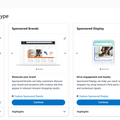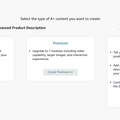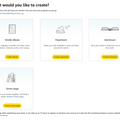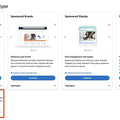In today’s competitive e-commerce landscape, optimizing your Amazon product listings is no longer optional, it’s essential. By understanding and implementing Amazon SEO strategies, sellers can improve product visibility, drive more traffic, and boost conversions. This blog explores the challenges faced by sellers, the strategies used to optimize listings, and the results achieved.
The Challenge
Many sellers struggle to gain visibility on Amazon due to the platform’s ever-evolving A9 algorithm. Key challenges include:
- Low Visibility: Products not appearing on the first page of search results.
- Poor Keyword Targeting: Ineffective use of keywords leading to low search rankings.
- Subpar Product Listings: Poorly written titles, bullet points, and descriptions.
- Ineffective Imagery: Low-quality images failing to attract buyers.
- Negative Customer Feedback: Lack of reviews or the presence of negative reviews hurting credibility.
Understanding Amazon’s A9 Algorithm
Amazon’s A9 algorithm determines how products are ranked in search results. It prioritizes:
- Keyword Relevance: Matching search terms to product listings.
- Sales Performance: Higher sales lead to better rankings.
- Pricing: Competitive pricing improves visibility.
- Availability: Out-of-stock products are deprioritized.
- Customer Feedback: Positive reviews boost rankings.
The Solution
To address these challenges, a comprehensive optimization strategy was implemented, focusing on the following areas:
1. Conducting Comprehensive Keyword Research
Effective keyword research is the cornerstone of Amazon SEO. The process included:
- Identifying Relevant Keywords: Using tools like Amazon’s search suggestions and third-party services (e.g., Helium 10, Jungle Scout) to find high-traffic keywords.
- Focusing on Long-Tail Keywords: Targeting specific phrases with lower competition but higher conversion potential.
- Analyzing Competitors: Extracting valuable keywords from top-performing competitors.
2. Crafting an Optimized Product Title
A well-structured product title is critical for both searchability and engagement. The optimized title included:
- Primary keywords at the beginning.
- A concise yet descriptive format that highlighted key features.
- Compliance with Amazon’s character limit and formatting guidelines.
For example, instead of “Wireless Headphones”, the title was revised to “Wireless Bluetooth Headphones – Noise Cancelling, 40-Hour Battery Life, Over-Ear Design”.

3. Writing Compelling Bullet Points
Bullet points were rewritten to:
- Highlight key product features and benefits.
- Address common customer pain points.
- Naturally incorporate secondary keywords.
Each bullet point focused on solving a specific problem, such as comfort, durability, or ease of use.
4. Crafting an Informative Product Description
The product description was revamped to:
- Tell a Story: Show how the product enhances the customer’s life.
- Use Persuasive Language: Highlight unique selling points.
- Incorporate Keywords Strategically: Maintain natural readability while improving searchability.
5. Utilizing High-Quality Images
Images were upgraded to:
- High-Resolution Photos: Professional-quality images to capture attention.
- Multiple Angles: Comprehensive views of the product.
- Lifestyle Images: Showcasing the product in real-world scenarios.
6. Encouraging Customer Reviews
To build credibility, the following steps were taken:
- Proactive Review Requests: Using Amazon’s Request a Review button to solicit feedback.
- Responding to Feedback: Addressing negative reviews professionally to demonstrate customer care.
- Monitoring for Fake Reviews: Reporting inauthentic reviews to maintain credibility.
7. Leveraging Enhanced Brand Content (EBC)
For sellers enrolled in Amazon’s Brand Registry, Enhanced Brand Content (A+ content) was utilized to:
- Add multimedia elements such as videos and comparison charts.
- Share the brand’s story to build a connection with customers.
- Provide in-depth information about the product’s features and benefits.

8. Monitoring and Continuous Improvement
Optimization is an ongoing process. The strategy included:
- Tracking Performance Metrics: Using Amazon’s analytics tools to monitor traffic and sales.
- A/B Testing: Experimenting with different listing elements to determine what works best.
- Staying Updated: Regularly reviewing Amazon’s guidelines and algorithm updates.
The Results
After implementing these optimization strategies, the following results were observed:
- Increased Visibility: Products began appearing on the first page of search results for targeted keywords.
- Higher Click-Through Rates (CTR): Improved titles and images led to more clicks.
- Boosted Conversions: Compelling descriptions and bullet points converted more visitors into buyers.
- Better Customer Feedback: Proactive review management resulted in higher ratings and more positive reviews.
- Improved Sales: Overall sales increased by 30% within three months.
Key Takeaways
- Keyword Research is Paramount: Understanding what customers search for is the foundation of optimization.
- High-Quality Content Drives Conversions: Titles, bullet points, descriptions, and images must work together to attract and engage buyers.
- Customer Feedback Matters: Positive reviews and professional responses to feedback build trust.
- Continuous Improvement is Essential: Regular monitoring and updates ensure long-term success.
Conclusion
Optimizing Amazon product listings is a dynamic process that requires a deep understanding of the platform’s algorithms and customer behavior. By addressing key challenges and implementing targeted strategies, sellers can improve visibility, drive traffic, and increase sales. Whether you’re new to Amazon or looking to refine your approach, these optimization techniques can help you achieve your e-commerce goals.
References
- Amazon Seller Central: https://sellercentral.amazon.com
- Helium 10 Keyword Research Tool: https://www.helium10.com
- Jungle Scout: https://www.junglescout.com
- Amazon A9 Algorithm Insights: https://www.amazon.com
- Best Practices for Amazon SEO: https://www.bigcommerce.com/blog/amazon-seo



















































Comments
Leave a comment